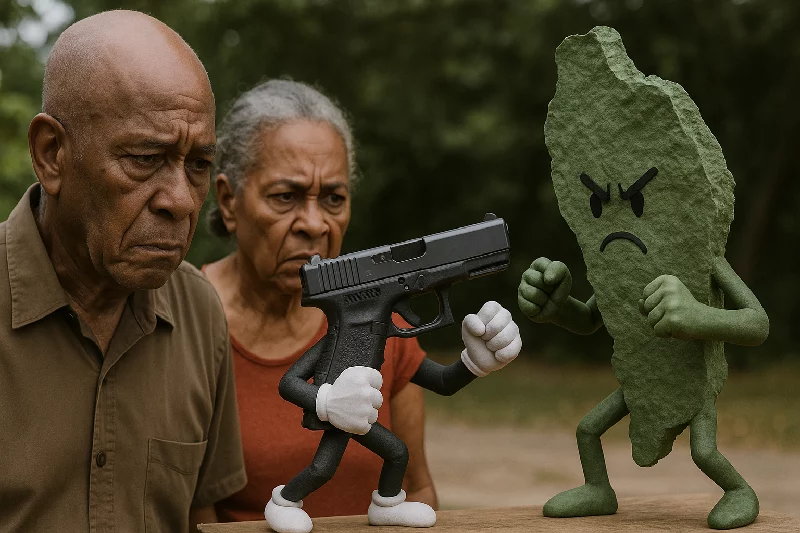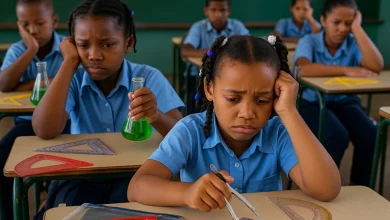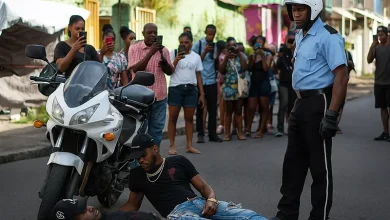
Recent violent incidents, including the fatal shooting of Kimon Emmanuel in Roseau, have sharply focused public attention on the rise of gun violence in Dominica. What was once seen as a peripheral concern has now made its way into the heart of our capital, rattling citizens and sparking urgent calls for action.
Although Dominica has historically been one of the safer Caribbean islands, the steady uptick in shootings, robberies, and violent altercations demands a deeper examination of the underlying causes. Violence is not growing in a vacuum; it is growing where opportunity has withered.
Disillusioned Youth: The Heart of the Crisis
Dominica’s youth are increasingly finding themselves at the crossroads of unemployment, lack of opportunity, and disillusionment. Despite the nation’s GDP growth, many young Dominicans, particularly in urban and peri-urban communities, experience few tangible benefits from national economic progress.
A 2023 Caribbean Development Bank (CDB) report highlighted that Dominica’s youth unemployment hovers near 30%. This disconnection fosters frustration, social isolation, and susceptibility to underground economies. Without viable pathways to success, some youths are tragically turning to crime and violence as desperate alternatives.
This is not merely a policing issue — it is a systemic failure to invest consistently in the human potential of the country’s future leaders.
Education and Vocational Training: A Missing Link
Educational reforms have been frequently discussed but implementation remains uneven. Limited access to practical vocational training, technology education, and entrepreneurship support continues to hamper youth readiness for meaningful employment.
Countries like St. Kitts and Nevis have had success blending academic and technical training with real-world job placement programs; Dominica could look toward adapting similar models to its needs. The absence of a clear national youth development strategy leaves a dangerous void that crime and violence eagerly fill.
Community Centers and Mentorship: Crucial but Neglected
Dominica’s community centers and sports facilities once served as critical safe spaces for youth development. Today, many of these spaces are underfunded or poorly maintained, missing vital opportunities for mentorship, arts, sports, and social engagement.
Well-structured community programs offering after-school activities, leadership training, and access to mental health resources could drastically reduce the appeal of criminal lifestyles. Civil society groups, churches, and NGOs can all play larger roles if properly empowered and resourced.
Police Reform and Community Policing
While harsher policing tactics may seem like a quick solution, international best practices show that “community policing” — built on trust, visibility, and youth engagement — is far more effective in reducing youth crime.
The Dominica Police Force must prioritize building bridges with youth through dialogue, presence at community events, and collaborations with schools and local leaders. Reactive law enforcement alone cannot resolve what is, at its root, a developmental and social crisis.
Urgent Need for a National Youth Recovery Strategy
Dominica needs a National Youth Recovery Strategy now more than ever. This strategy should prioritize:
- Expanding youth entrepreneurship programs
- Subsidizing vocational training
- Renovating and revitalizing community spaces
- Supporting mental health initiatives for at-risk youth
- Formalizing mentorship networks involving successful Dominican professionals
Gun violence is not simply a policing failure; it is a developmental failure. Reversing this trend requires viewing our youth not as a threat to be contained, but as assets to be cultivated.
This article is copyright © 2025 DOM767








